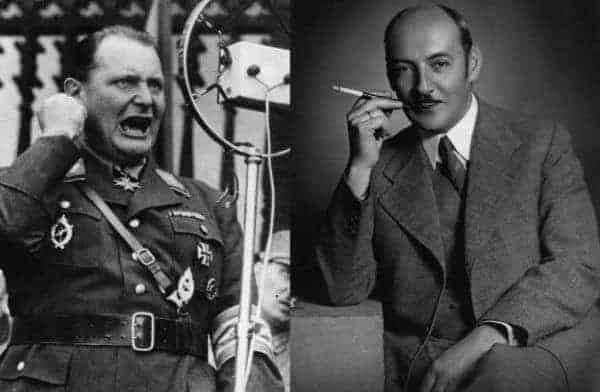The life of Albert Goering is an extreme example of family members going down different paths. While his older brother Hermann was one of the leading Nazis, Albert detested the fascist party and risked his life to save dozens of people from death during World War II. The story bears a resemblance to the activities of Oskar Schindler, but while the latter’s good deeds are well documented, Albert Goering’s heroics are relatively unknown.
Early Life
Albert was born in Berlin in 1899 and was six years younger than his infamous brother Hermann. Despite their contrasting beliefs, the two brothers were quite close, and Hermann probably saved his younger sibling’s life during the Second World War. Hermann was an extrovert who exuded confidence and fearlessness. In contrast, Albert was shy and withdrawn. At the Nuremberg Trials, Hermann asserted that he was the optimist of the two while his brother was pessimistic and melancholic.
Both men fought in World War I, but while Hermann returned home a hero and a national celebrity, Albert, as always, remained in the background. He was shot in the stomach on the Western Front and was extremely fortunate to survive. Albert married twice by 1923, and at this stage, his older brother had joined Hitler and was wounded during the failed Beer Hall Putsch.
This apparently resulted in Hermann’s lifelong addiction to morphine, and Albert was dismayed at his sibling’s activities with the Nazis. He used to complain that Hermann would come to a bad end if he continued his involvement with Hitler. Alas, the older Goering continued his rapid rise through the Nazi ranks and by 1933, he was the second most powerful man in Germany.

Brotherly Love
Albert moved to Austria in 1933 as a protest against the Third Reich. His peace didn’t last long, as Germany annexed Austria in March 1938. Albert did everything he could to arrange visas and money for fleeing Jewish families in Vienna, and used his name to defy German officers openly.
The first recorded instance of him using the family name to help Jews occurred around this time. In Vienna, he discovered Nazi officers forcing elderly Jewish women to scrub the streets on their knees. A baying mob appeared and hurled stones and other missiles at the unfortunate ladies. Albert took off his jacket and took the place of one of the women. Irate SS officers asked to see his papers, and once they saw the Goering name, they left him alone.
Another incident occurred in Vienna soon afterward. A group of thugs hung a sign around an old woman that said ‘I am a Jewish sow.’ Albert came to her aid and took off the sign. He then punched two Gestapo officers. If anyone else did this, it would have been a death sentence, but once again, having the Goering surname came in useful.

